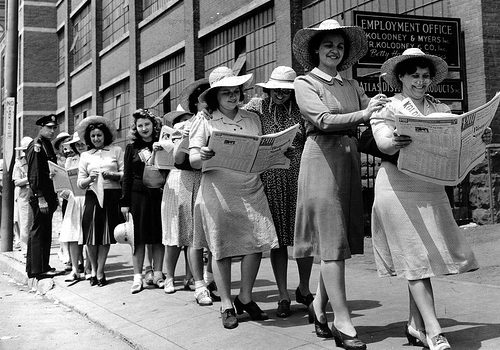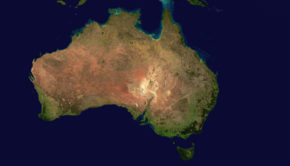German Women, fighting spirit and wisdom
On the occasion of the International Women’s Day on March 8th, we would like to pay tribute to the German feminist movement. Generally, if you think about 19th century and 20th century great personalities of German art and culture, those who come to mind are mainly men: Nietzsche, Einstein, Marx, Kafka, Thomas Mann, Richard Wagner, Joannes Brahms, and so on. However, the German history of the last 200 years is full of female characters who started dealing with the issues of women’s self-determination, their actual role in society, as well as their importance in the relations within institutions, politics and the family.
From 1800 onwards, women’s rights become one of the main themes of cultural and social debate in Germany, which of course many men tended to overlook, and even totally disregard during the Nazi Period, when women were considered just a functional element for polarizing power and for the economic development of the nation. But the seeds sown by the awe-inspiring German feminists of the 19th century, had already become part of the culture and DNA of Germans, and from Germany slowly spread across Europe. So just two words: “Thank You,” can express our gratitude to these women who have made our society a better place for everyone. Rosa Luxemburg is not cited here because of her Polish origin.
Fanny Lewald, 1811-1889
Fanny Lewald’s literary salon in Berlin, was a favorite among German intellectuals and feminists in mid-1800s. In her novels, she dealt with issues relating to women’s self-determination and she’s been one of the few women who, at the time, managed to support herself being an intellectual. She traveled a lot in Italy in the company of novelist Adolf Stahr, who was already married and with children, thus creating great scandal. Lewald was criticized for not being radical enough, but she believed that feminist extremism was not useful to the cause.
Louise Otto, 1819-1895
In 1843, Luise Otto wrote: “Women participation in parliament and admission to all public offices is not a right but a duty.” Between 1849 and 1852 she published ‘Frauen Zeitung’, the first German magazine written by women for women. In 1865, she founded the Allgemeiner Deutscher Frauenverein (General Union of German women) in Leipzig.
Helene Lange, 1848-1930
Since 1887, she strives for legal and professional equality for women teachers in Germany. In 1889, she founded the Berliner Realkurse für Frauen, and in 1898 became president of the Allgemeiner deutscher Frauenverein, the leading organization for the empowerment of women. Among other thing, Helene Lange also established a private school in Berlin with the primary goal of preparing women for the licensing exam.
Clara Zetkin, 1857-1933
German politician, one of the promoters of March 8th as International Women’s Day: she suggested the date during a feminist conference in Copenhagen. She was a Socialist politician and spent her life fighting for the emancipation of women as a precondition of the proletariat’s seizure of power. She was a close friend of Rosa Luxemburg.
Anita Augspurg, 1857-1943
During the 1890s, she fought to grant women the right to attend universities. She studied in Zurich and was the first German woman to earn a law degree. The monthly magazine Frauenbewegung Die (Women’s Movement) denounced discrimination against women and qualified marriage as a form of legalized prostitution. She was strongly opposed to any war. The radical feminist Lida Gustava Heymann was her life-long companion.
Helene Stocker, 1869-1943
In 1904, she founded in Germany a first movement which tackled the issues of sexual and family reform, equality between husband and wife, divorce, recognition of civil unions, and equal rights for people born in Germany regardless of their family origin. She advocated the legalization of abortion and women’s rights to self-determination. Stocker became the icon of “free love,” which thing is not exactly in line with the principles of the German feminist movement in the early 20th century.
Alice Salomon, 1872-1948
German feminist, author of books and articles, she was a founding member of the German Academy for the training of women in the labor market. She wrote: ” You start seeing everything in black and white and then comes the time when you are awake at night, sleepless, racking your brain over the shadows between. This is probably the hardest crisis you have to go through in Social Work, the deepest disappointment, when you lose… the belief in a radical change, when you have to accept that you are only able to improve the state of affairs with economic and educational support“.
Dorothee Sölle, 1929-2003
Theologian and feminist writer, she studied theology, philosophy and German literature in Cologne, Freiburg and Göttingen. In 1972, she was a professor of philosophy at the University of Cologne and then she taught theology at the University of Mainz. Activist against the Vietnam War, in 1975 she participated in the First World Congress organized by the Christians for Socialism movement in Quebec, Canada. Influenced by the debate on the end of theism, she elaborated the idea of Jesus Christ as God’s representative, and launched a sharp attack on ‘Christian masochism’ according to which human suffering is an extension of Christ’s suffering on the Cross, an unavoidable condition that persists until all things are reconciled with God. Sölle believes that men and women must work together against sexism and oppression, in communion with God.
Helke Sander, 1937
She was born in Berlin, and attended acting school. She worked for years as a director for Finnish television and returned to Germany in 1965. Here she resumed her studies at the Film and Television Academy, worked as a journalist and was committed to women’s rights. She has been one of the organizers and founders of the “Kinderladen”, a parent run nursery. Between 1971 and 2005 she produced and directed a dozen films that dealt with a variety of important issues of the 20th century, such as the work environment, women’s condition, but especially women’s individual and collective identity as well as their social status.
Alice Schwarzer, 1942
Alice Schwarzer is one of the most prominent German feminists of the 20th century. She studied sociology and psychology in Paris and worked in the French capital as a writer and freelance journalist until 1974. Here she founded the MLF – Mouvement de Liberation des Femmes: women’s economic self-sufficiency was one of the main socio-political themes addressed by Schwarzer. One of her most famous books is Der kleine Unterschied und seine Grossen Folgen (The little difference and its huge consequences,) translated into eleven languages. In 1977, she founded the German feminist magazine Emma, exclusively produced by women. In 1987, she led a campaign against pornography and in 2002, one against prostitution. Since 1992, she has become a celebrity, thanks to her frequent appearances in German TV talk shows.
This brief biographical list of members of the German feminist movement, is definitely not exhaustive. If we have forgot someone important, please let us know by commenting on this post.
Photo by Kheel Center










